The total guarantees of the state since 2009, when they became a weight on the necks of Montenegrin citizens due to the Aluminum Complex (KAP), amounted to around 800 million euros. That money, which was given by the governments they were at the head of Milo Djukanovic, Igor Luksic i Dusko Markovic, could have been invested in the construction of one section of the highway or several larger energy facilities.
Of the total approved and non-returned state guarantees, which the governments of the Democratic Party of Socialists (DPS) handed out handily to companies close to them, in previous decades, citizens paid about 230 million euros, which is, for example, the value of a small luxury tourist resort or several well-equipped hospital.
A record amount of guarantees was issued in 2010 - 247 million euros, which was then eight percent of GDP. According to Monstat data, the GDP in 2010 was around three billion euros.
According to the Law on Budget and Fiscal Responsibility, a state guarantee is issued by the Government for the purpose of ensuring the repayment of obligations based on credit agreements or debt securities. The total amount of guarantees may not exceed 15 percent of GDP.
Minister of Finance Aleksandar Damjanović za Center for Investigative Journalism of Montenegro (CIN-CG) said that the issuing of guarantees is a support mechanism for key development projects, provided for by the Law, and the essence is that development projects are monitored extensively and from every aspect and react in a timely manner to possible problems in their implementation.
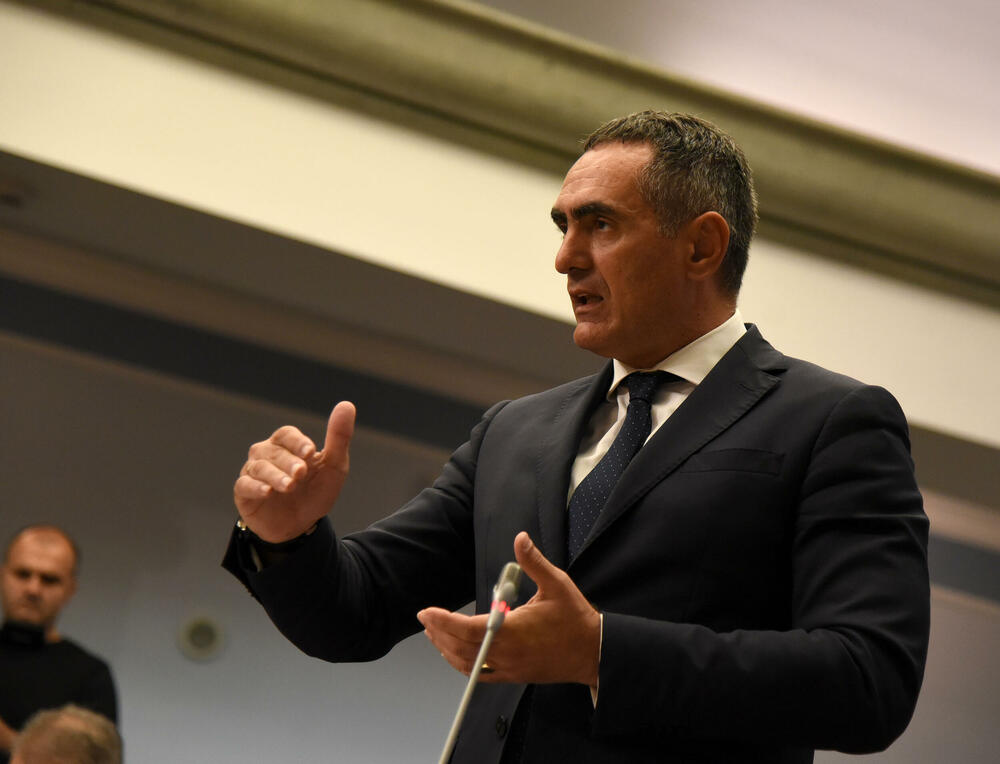
"The essence is that guarantees are given to companies that, in a negative scenario, will be able to return the obligation that the state would eventually pay for them," said Damjanović.
The state issued the most guarantees for companies that were the carriers of the industrial development of the state - KAP, Ironworks, Bauxite Mines, railway and energy companies. However, the guarantees in the case of KAP, Bauxite and Željezara ended up in the pockets of their former owners, who devastated these companies and left debts to the state.
Only for KAP, which, although privatized again, has been practically shut down in recent years, state guarantees, which were eventually paid from the state budget, amount to 135 million euros.
The guarantees were given to KAP more than a decade ago (in 2009 and 2010), during the Đukanović government, and while he was managing it Oleg Deripaska, oligarch close Vladimir Putin. Deripaska is now under EU and US sanctions, as well as Montenegro, because of Russia's attack on Ukraine.
At that time, guarantees were also given to Deripaska's other company - Bauxite Mines, which is now also failing, for loans of more than six million euros, which were eventually paid by the state. Đukanović's Government guaranteed three Bauxite loans with NLB Bank.
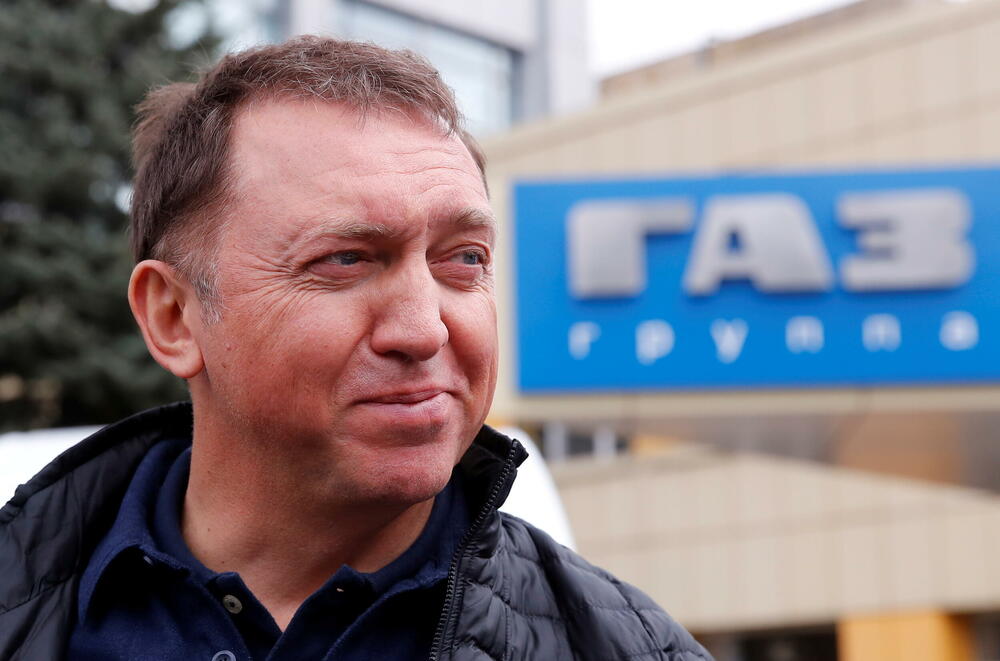
The case of guarantees for KAP is still being investigated by the Special State Prosecutor's Office (SDT), due to the suspicion that damage has been caused to the state.
The State Audit Institution (DRI) also confirmed that guarantees for KAP were given without proper assessment and security.
In the SAI report from 2013, it was stated that the facts in the financial and audit reports of KAP warned that the factory has "accumulated losses, that it is over-indebted and that it cannot pay back loans from its activities with great certainty."
"The buyer of KAP, in the period before the issuance of state guarantees, did not fully fulfill the contractual obligations, which could be one of the reasons for the termination of the contract concluded in 2005", the state auditors stated.
The guarantees for Željezara, which is practically defunct, were also disputed, and were given in 2009 and 2010 by the Đukanović Government to the private company Montenegro specialty steels (MNS), connected to Anom Đukanović, the sister of the then prime minister, and the current president of the country. The state paid 34,5 million euros for Željezara in 2009 and 2011 on the basis of failed guarantees.
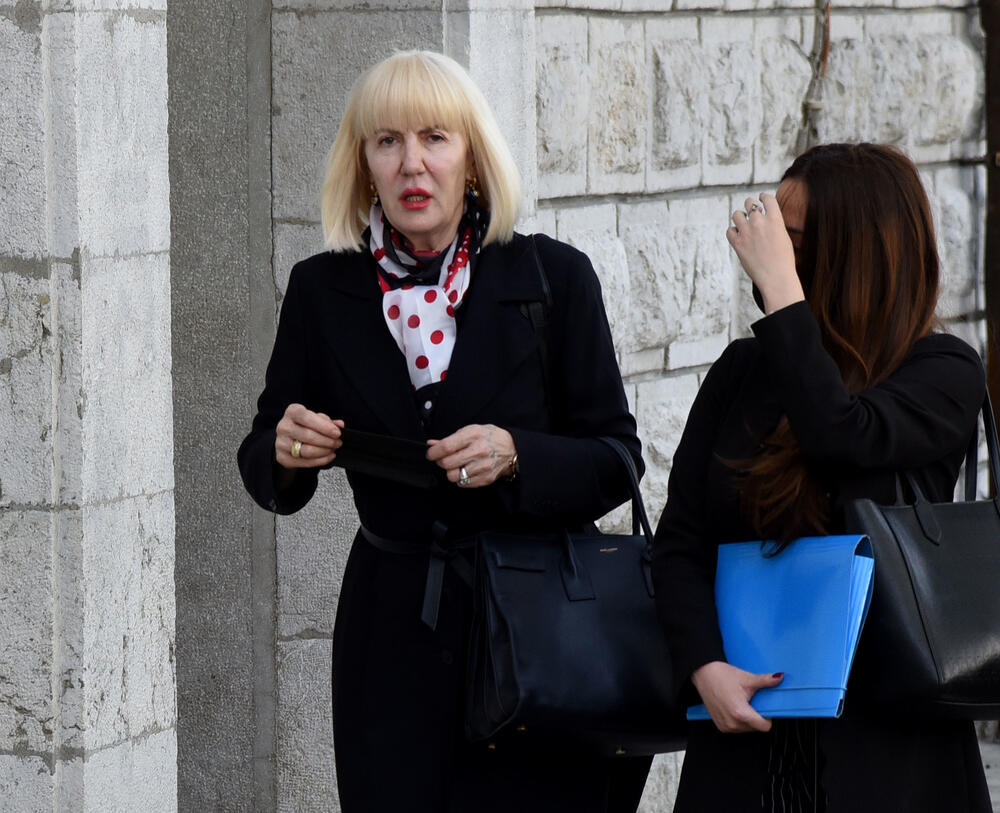
For the then state-owned newspaper company Pobjeda, the governments of Prime Ministers Lukšić and Đukanović paid 3,2 million euros in guarantees in 2011, 2012 and 2013, while it was still state-owned and represented the striking fist of the DPS authorities, especially in dealing with the independent media and NGOs.
"The audit established that (considering that Pobjeda, without the support of the majority owner, was not able to settle its obligations to creditors, as well as part of its business obligations, in case the sale of the state share is not realized), there is a risk of introducing bankruptcy, i.e. there is a high degree of risk that obligations based on long-term loans approved by Podgorička banka and Erste bank, for which state guarantees were given, will be repaid by the state", says the DRI report.
In 2010, when Đukanović was prime minister and Lukšić was minister of finance, the state guarantee was also given for a loan to revive production and severance pay for workers in Primorka Bar, which was privatized in 2008 by Krisma Group from Podgorica. Nebojša Bošković. During 2010, it became the property of the offshore company Melgonija holdings ltd from Cyprus, which was also founded by Bošković.
However, the loan for Primorka was diverted to repay the debts of Bošković's companies Krisma Motors and Krisma Trade, so Primorka went bankrupt, and state guarantees were activated in favor of NLB Bank and Krisma Group, which is why an indictment was filed and the trial is ongoing.
In 2019, the state also paid guarantees for the Municipality of Budva of almost 30 million euros, for a loan from the German-Austrian WTE group, for a disputed waste water project in which the Budva criminal group was involved, headed by, by its own admission, former president of the state of the community of Serbia and Montenegro and official of the DPS Svetozar Marovic. Marović is waiting to serve his prison sentence in Montenegro, but he is in Serbia, which refuses to extradite him for six years. Budva is in danger of losing millions more in this business, because the investor initiated international arbitrations.
DPS governments also approved guarantees to smaller private companies, such as Nikšić's Mi-Rai Group, then to the banks of the fugitive businessman. Duško Knežević, municipalities, Montenegro Airlines, which they kept on the phones until two years ago, when it was shut down.
Of the state-owned enterprises, the railway companies receive the most guarantees, and "hanging in the balance" are the guarantees approved for loans from the Chinese Exim bank for the purchase of Crnogorska and Barska plovidba ships.
SDT is silent about guarantees for KAP
The Prosecutor's Office has not yet made a final decision regarding the guarantees to the Russian owners of KAP, totaling 135 million euros, although almost two years have passed since the arrest of several state officials on suspicion of abuse of office. The SDT did not answer the question of CIN-CG when they will make the decision that they announced last year when the head of that institution was the former Chief Special Prosecutor Milivoje Katnić.
The first guarantee for KAP's loan of 49,68 million with the Hungarian OTP Bank was issued in 2009. In 2010, two more were issued - for a loan with Deutsche Bank of 22.000.000 and the Russian VTB Bank of 60.000.000 euros. The loan guarantee with Deutsche Bank was activated in 2012, and the other two in 2013.
In 2005, KAP was bought by the company Salomon Enterprises ltd (later renamed CEAC), owned by Russian businessman Oleg Deripaska, who was close to the then prime minister and now the president of the country, Milo Đukanović, and his adviser, the former minister of foreign affairs. Milan Rocen. Roćen was the ambassador to Russia and had strong ties with the top there and Deripaska himself, as evidenced by the intercepted conversations that were previously published in the Montenegrin media.
For decades, KAP was a strategic Montenegrin enterprise, the largest exporter, on which the entire metallurgical and energy chain in the country depended. In addition to KAP, Deripaska also privatized the Nikšić Bauxite Mines, which are also part of that important economic system. Both companies, once giants, have since begun to sink, and are now on the verge of shutting down, which shows that the money, which was guaranteed by the state, was practically wasted.
Finance Minister Aleksandar Damjanović says that what happened with the guarantees indicates that everything should be done so that such things never happen again.
"We will see whether the competent authorities will complete their part of the work. However, everything that has happened obliges us to do everything so that such things never happen again and so that the state is protected when, through guarantees, it helps any company, state or private, in providing credit support for the realization of capital projects that have wider social and state importance, because a guarantee should be issued only for such projects", said Damjanović.
He reminds that when he was a member of parliament, he often commented on this in the Assembly and that as chairman of the Committee for Economy, Finance and Budget he formally initiated activities to determine the circumstances and consequences of issuing guarantees to companies (KAP, Željezara), on the basis of which the audit was carried out.
The guarantees to KAP were given on the basis of the Settlement Agreement signed by the Government and CEAC in 2009, when the state acquired 50 percent of the Russian shares in KAP and Bauxite. The state thus, a few years after privatization, became a co-owner of KAP, i.e. it got 29,36 percent of shares in the Podgorica factory, and 31,82 percent in Bauxite Mines, the same as CEAC.
The state auditors determined that the nominal value of shares of KAP and Rudnik amounted to only 22.185.131 euros, which represented 16,85 percent of state guarantees to KAP, if the shares were sold at nominal value. The market value of the shares of those companies was significantly lower due to losses and debts.
The contract with the Russian managers in KAP was signed by the former Minister of Economy Branko Vujović who was arrested in April last year, as well as 11 civil servants, on suspicion of abuse of office and causing damage to the state budget. Vujović was the Minister of Economy from 2009 to 2013, during the period when guarantees were given for KAP.
Vujović and other officials were immediately released to defend themselves, and Đukanović recently awarded Vujović with the Order of the Montenegrin Flag "for his contribution to the construction, development and affirmation of Montenegro, restoration of its statehood and significant achievements in various fields".
Because of the guarantees for KAP, in May 2011 the MPs of the Movement for Change filed criminal charges against Đukanović, Deripaska and several state officials and Russian managers in the factory. Then a case was formed in the SDT. Because of this, MANS also filed a criminal complaint against Đukanović and Lukšić and several state officials in 2013.
Monitor journalist Zoran Radulović for CIN-CG he says that the case is a guarantee for KAP, which is now, like Bauxite, managed by a local businessman Veselin Pejović, one of the simpler ones for the prosecution and that the report of the SAI is sufficient for filing an indictment.
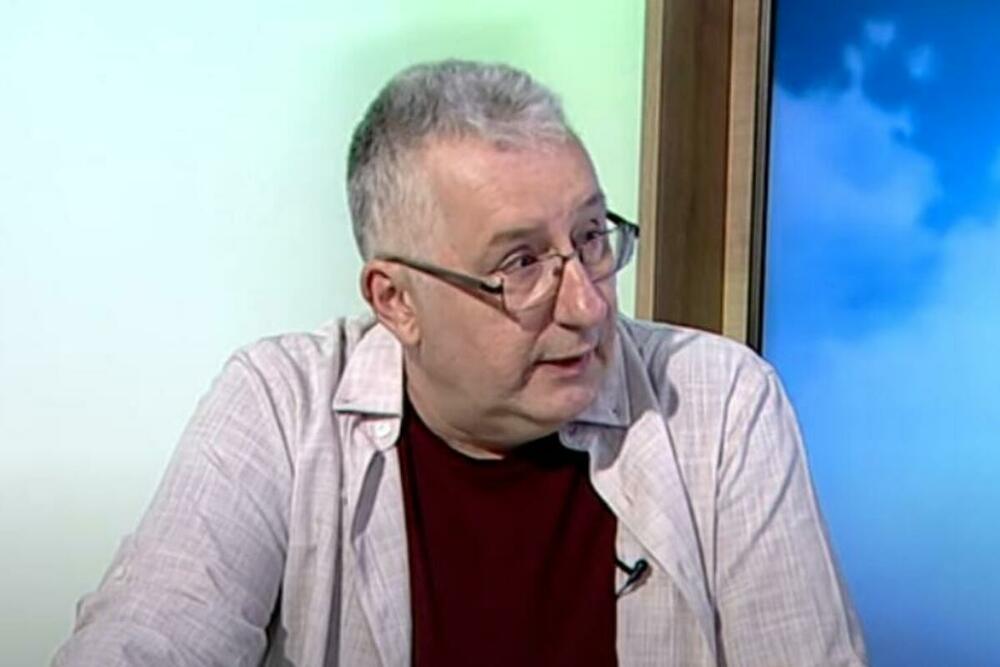
Commenting on the ten-year survey of guarantees for KAP in SDT, he said that "Einstein needed less to define the theory of relativity".
Deripaska and his companies, on the other hand, initiated several arbitration proceedings against Montenegro, claiming that Montenegro took measures that created a hostile working environment for KAP and Bauxite after privatization in 2005 and eventually "expropriated" (forcibly took away) KAP by forcing it into bankruptcy and "depriving the owner of the opportunity to protect the investment".
The commercial court declared bankruptcy in the factory in July 2013, and then in Bauxite, which resulted in the Russians losing the right to manage it. Bankruptcy was introduced at the request of the Ministry of Finance, due to a debt of 24,4 million euros based on activated guarantees to Deutsche Bank. In 2014, through bankruptcy, the factory's assets were bought by Uniprom of Veselin Pejović, as well as Bauxite Mines, and Deripaska and CEAC turned to international courts.
After two arbitration proceedings, initiated by Deripaska's companies before arbitration courts in Vienna and Paris, were concluded in favor of Montenegro, he personally initiated a third one before the Swedish Arbitration Tribunal in December 2016, claiming that Montenegro violated several obligations from investment protection agreement between the FRY and the Russian Federation. The Swedish court declared itself incompetent stating that the agreement between the FRY and Russia is not applicable to Montenegro, which is an independent country, Deripaska appealed to the Court of Appeal in Stockholm, asking to annul the decision of the Arbitration Tribunal. On November 11 of this year, the Court of Appeal ruled in favor of Montenegro.
The Ministry of Economy announced that the court ordered Deripaska to compensate Montenegro for the costs of the procedure in the amount of 628.456 euros and 86.075 dollars. The Ministry said that Deripaska did not even pay the costs of the earlier procedure of around 1,6 million euros in favor of Montenegro.
The prosecution did not deal with guarantees for Željezara and Pobjeda
In addition to the guarantees for KAP, the subject of the state audit were the guarantees issued to the Railway Company, Railway Infrastructure, Railway Transport and Pobjeda in 2010 and 2011. The prosecution did not deal with them.
Of the total amount of guarantees paid for Željezara, 32,92 million refers to the unpaid loan of Željezara from Credit Suisse Bank, and 1,6 million to the loan from the offshore company BlueBay Multi-Strategy investments from Luxembourg, whose ultimate owner is the British BlueBay group , through a series of offshore companies.
The guarantees were given while the factory was managed by the Dutch company MNSS, and the president of the Board of Directors was Radomir Vukcevic, Ana Đukanović's partner at the time, who herself was a member of the board of directors of Željezara for a time. She was a lawyer during two privatizations for the buyers of Željezara, the Russian Midland Resource and MNSS.
The guarantee for the loan to BlueBay was approved in the same year that it fell, 2009, and for the loan from the Swiss bank in 2010.
After MNSS accumulated a debt of millions for workers' salaries, the factory was declared bankrupt in April 2011, at the request of the employees, and the previous owner initiated arbitration proceedings against Montenegro before the court in Paris, demanding the payment of 72 million euros. MNSS and the related company Rekupero stated in the lawsuit that they started the arbitration because of "irregular and illegal behavior of Montenegro towards the investments of investors in Željezar Nikšić".
MNSS lost the arbitration, and Željezar was managed by a businessman from Nikšić during the bankruptcy Miodrag Daka Davidović. The factory was sold for the fourth time in May 2012 to the Turkish company Toscelik for 15,1 million euros. Today, the steel mill is again in crisis, because the Turkish owner has suspended production, and the Government is considering the possibility of the factory being taken over by the state-owned Elektroprivreda.
In 2011, the state paid guarantees of 992 for Pobjeda's loan at Podgorička banka, then 750 euros in 2012 at the same bank, and in 2013 another 1,48 million at Societe Generale banka (which bought Podgorička banka).
The state has been helping that newspaper company for years, and in 2009 it issued a guarantee for a loan of 2,97 million euros with Podgorica banka, and in 2010 for 3,5 million euros with Erste banka.
Victory was bought in 2014 by a Greek businessman Petros Statis, close to Đukanović and to whom the most elite Montenegrin resorts Sveti Stefan, Miločer and Kraljičina plaža were previously leased in the package.
The guarantees for Primorka Bar, which was privatized by the Podgorica Krisma group owned by Nebojsa Bošković in 2008, were also disputed. In 2010, the government gave a guarantee to the new owner of Primorka, the offshore company Melgonija holdings ltd from Cyprus. According to the indictment, that company was formed by Bošković. Primorka received a guarantee of four million euros from the Government for a loan of 14,4 million euros, for which Primorka's entire property was pledged. The guarantees fell in 2014, and the SDT filed charges against several people, including the former director of NLB Bank. Črtomir Mesarić, Bošković, as well as NLB Bank due to the suspicion that they formed a criminal group at the beginning of 2009 and that NLB Bank received property benefits of around 6,6 million euros to the detriment of the Montenegrin budget. The trial in the High Court in Podgorica is ongoing.
Nebojša Bošković was sentenced in 2019, in another case, to three years and five months for criminal association with the aim of computer fraud and the withdrawal of millions from foreign bank accounts. He is on the run and a warrant was issued for him last year. This is why the trial in the Primorka case was postponed in February of this year, because Bošković's lawyer, as reported by the media, said that he did not know where his client was.
The state covered up failures, bought social peace
From the previous examples, it is evident that DPS governments in the previous period gave guarantees to their trusted businessmen and companies close to the government.
Zoran Radulović believes that the state did not give guarantees to solve short-term problems or to make the economy better, but to cover up its own failures and buy social peace.
"That's why we have issued guarantees without an adequate assessment, that they fell, and that the state through the existing security mechanisms did not collect even a fraction of what was our money, and it was spent by someone else," said Radulović.
Protector of property and legal interests of Montenegro Bojana Cirovic did not answer CIN-CG's questions about which companies remained indebted to the state based on the issued guarantees and whether collection procedures had been initiated. It is not known that any company has returned the debt to the state based on guarantees.
Despite the frequent warnings of the Central Bank (CBCG), especially through the reports of the vice governor Nikola Fabris, that the state debt is increasing because of the guarantees, the Government continued to issue state guarantees even after those issued to KAP.
"The tendency of the external debt to grow over the last few years is worrying. Therefore, in the coming period, one should be very restrictive when issuing guarantees", the CBCG warned back in 2011 in a report on the state's debt.
An unsuccessful attempt to rebuild the naval fleet
By purchasing ships for Montenegro and Barska plovidba, Montenegro wanted to renew its naval fleet, however, those ships, a total of four, were immediately leased.
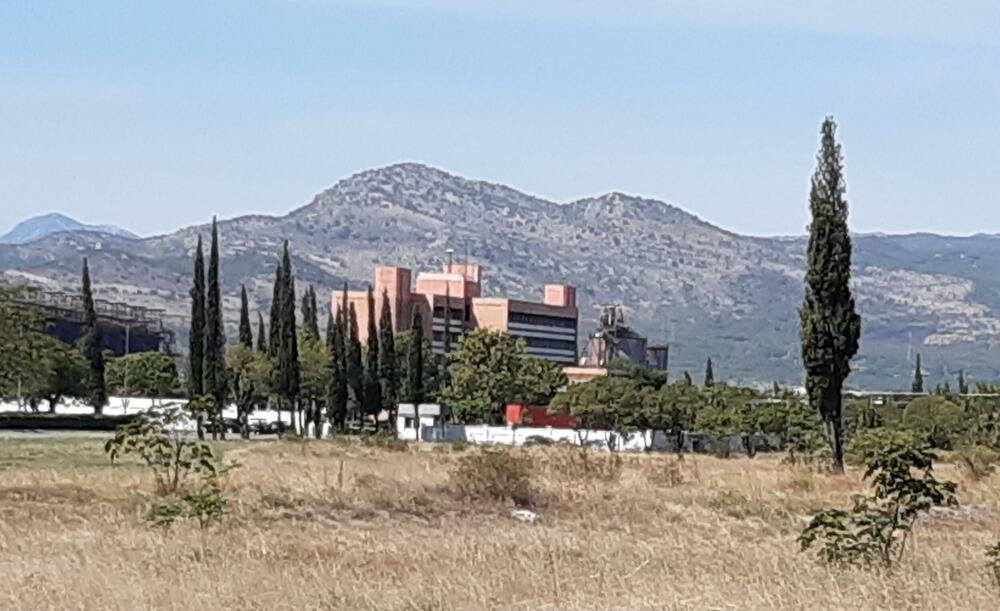
The loan guarantee of EUR 36.632.368 from the Chinese Exim bank for the purchase of Crnogorska plovidba ships was given in 2010, when Đukanović was prime minister and Lukšić was finance minister. In addition to Crnogorsk plovidba, in 2013 the Government also guaranteed Barska plovidba's loans for two ships, in the amount of 46,4 million dollars, also with the Chinese Exim Bank. Then the prime minister was Đukanović again, and the finance minister Radoje Žugić.
An analysis by the NGO MANS and "Vijesti" from 2016 showed that the Government contracted the procurement of new ships without valid economic analyzes on the profitability of those projects, even at the time of the biggest financial crisis. In the analysis, it was already warned of the danger that a significant part of the state guarantees given on that basis will be paid by Montenegrin citizens.

Thanks to the improvement of market conditions and the growth of freight rates, maritime companies managed to pay installments to the Exim Bank only this year, instead of the state doing it on their behalf, as in the previous few years. The companies pay two installments in January and July each year, which total about nine million dollars because the loan was agreed in that currency.
In January last year, due to the loss-making operations of both companies, there was a threat of a drop in guarantees and that the state would immediately pay the entire remaining amount plus interest and costs, but the government, in negotiations with Exim Bank, managed to agree to pay both installments for the companies in 2021.
No one is responsible for inflated invoices
In 2019, the government paid 29,25 million euros for the controversial wastewater project in the Vještice settlement in Bečići, based on guarantees. The German-Austrian concern WTE, after activating the state guarantee, left the plant in January 2020, leaving it in poor condition to the Municipality of Budva for management.
As CIN-CG previously wrote, Budva, in addition, has not solved its key ecological problem, because only the narrowest part of the city is connected to the constructed plant, while the sewage from the territory of Jaz, Petrovac and Buljarica continues to flow into the sea, and it is not the sewage network for Sveti Stefan was also built. Even before the start of the works, three million euros were stolen from the municipal coffers with a fake invoice, which was admitted by the convicted head of the Budva criminal group, the then vice-president of the DPS, Svetozar Marović.
No one has yet been held accountable for inflated invoices, fictitious works and services, installation of cheaper and inferior materials, and the Germans have initiated international arbitration in Frankfurt and Geneva, demanding more than 100 million euros in compensation.
Guarantees for the winners of the transition
Đukanović's government gave guarantees for Nikšić's Mi-Rai group for a loan of 800.000 with Hipotekarna banka in 2010, and Lukšić's government in 2011 for a loan of 700.000 with Hipotekarna banka. In 1,69, the state paid 2013 million for Mi-Rai loans to the Mortgage Bank.
Owner of Mi-Rai Group Branko Mickovic he is one of the "winners" of the transition, known for the privatization of the Nikšić furniture factory "Javorak", which he bought out of bankruptcy in 2004, only to re-introduce bankruptcy into it a dozen years later.
In 2016, former employees of Javork filed a criminal complaint against Mićković, accusing him of violating the sales contract by selling and leasing Javork's property and pledging for loans.
In 2019, the state, based on the given guarantees, paid a total of 9,43 million in debt for Invest Bank Montenegro and Atlas Bank to the European Investment Bank. The guarantees were issued by the Government of Milo Đukanović in 2009 and 2010, and they were activated because at the end of 2018, forced administration was introduced in those banks of businessman Duško Knežević, as well as a temporary suspension of payment of obligations, which made it impossible to repay the debt.
SDT filed indictments against Knežević accusing him of several criminal offenses in the field of finance, such as tax evasion, money laundering, corruption...
Knežević initiated an arbitration case in which he is demanding EUR 500 million in compensation from Montenegro for, as he stated in the request, damage caused by "the illegal introduction of bankruptcy in two banks and the illegal actions of state authorities in the Meljine complex in Herceg Novi."
Knežević was also the owner of the hospital in Meljine, which was declared bankrupt in 2018 and is about to be closed.
The Government recently announced a solution for that hospital.
Guarantees next year only for state-owned enterprises
The government planned to issue guarantees of 160 million for six state enterprises - Regional water supply, Railway infrastructure, Railway transport, Montecargo, Montenegrin electric transmission system (CGES) and Elektroprivreda.
Minister of Finance Aleksandar Damjanović said that the guarantees are intended for credit arrangements that will be used to finance infrastructure and development projects.
"In accordance with the Law on Budget and Fiscal Responsibility, state guarantees can only be issued for the financing of capital projects, as can be seen from the presentation of the planned guarantees. "Whether the planned arrangements will be implemented depends on the maturity of the projects that the potential user of the guarantee plans to implement, as well as the ability of the user of the guarantee to take on debt and settle its own obligations," said Damjanović.
From 2009 to this year, the state has issued guarantees of over 100 million euros for railway companies, mainly for loans for the overhaul of certain parts of the railway and the purchase of equipment.

Bonus video:





